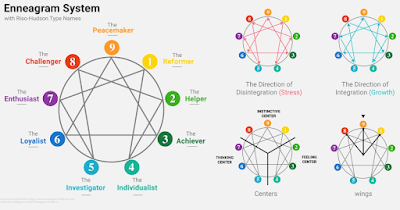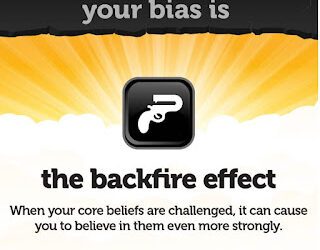Have you ever been in a new situation where you didn’t know what to do? This is common when visiting foreign countries, but also happens pretty regular in our lives. Think of when you may have started a new job or new school, visited a new type of restaurant, or attended a gathering with people of a different social group than you. What did you do in those situations? If you’re like most people, you watched other people and copied their actions.

This is an example of the social proof principle. We readily admit that we rely on others when it comes to social situations, but does it really affect us when we make cognitive choices? The answer is yes, and far more than we realize. The apologist is quick to point out that social proof is a logical fallacy (usually an appeal to the majority), and she would be right. While this is true, it is not entirely bad, even for cognitive decisions. It can help us make quicker decisions and prevent people from extremist beliefs or actions. Unfortunately, it also allows people get away with intellectual laziness and sometimes, bad choices.
The social proof principle trades on the idea that the majority is usually right, and even when the majority is wrong, there’s safety in numbers. For most people, this is so ingrained in their thinking that they don’t even recognize the power it has over them. It also has the effect of giving people permission to act in ways they otherwise wouldn’t. For instance, multiple studies show that after a suicide it reported in the media, there is a temporary increase in suicides afterwards. The effect, known as the Werther Effect, is even thought to apply to airplane and automobile accidents, which also spike after public suicides because the pilots and drivers are thought to commit suicide by crashing intentionally.
Just like with the previous persuasion principles I discussed, as Christians, we don’t want to use this principle to trick or manipulate people. Instead, we want to use it to remove barriers to rational decision making. My own conversion, which was hindered by the lack of social proof, helps see how this principle can be used positively.
When I started to investigate Christianity as a non-believer, I was convinced by the evidence, but didn’t accept it because I had no social proof. I thought I was being fooled because I was just a college student and I lacked the knowledge necessary to refute such claims. If I had known Christians who knew of and talked about the evidence, I would not have been so skeptical of it and likely would have accepted it sooner. Instead, I had to research the evidence deeper and longer to make sure I wasn’t missing anything.
Most people won’t go through the extra steps that I did and will remain unbelievers. We don’t want that to happen simply because people aren’t willing to stand up to their crowd. There are two primary factors that help make the social proof principle more effective and several ways we can apply each one. It works best when people are similar or part of the same ingroup (similar to liking) and when situations are uncertain or ambiguous. Here’s how we can use both to help people think more freely.
Similarity
People are more likely to copy people who are more similar to them. This is why companies use actors who match the product’s intended demographic for their commercials. (On a side note, this is one of many reasons why we need more women, minorities, and social scientists in apologetics.) If you want to influence people with social proof, you want to be more like them or highlight others who are. In this way, it is like giving a person permission to believe if they want to.
If you are having an apologetics conversation with a friend who is or was a physics major in college, then your chances of convincing him are slim to none, unless you also have a physic degree. Since most of us aren’t physicists, we would do well to have examples of Christian physicists such as Hugh Ross, Luke Barnes, John Polkinghorne, or others. It would be even better if you can mention some who converted as a result of the evidence (I don’t know the testimonies of those above well enough to know if evidence helped them convert).
This is why it’s good to be aware of other Christians in different areas of life. Can you name a Christian or two who is a professor in each major academic discipline, an athlete in each major sport, an actor or actress, is a musician in a non-Christian band in each genre, works in the business world, who is in politics, or who is a racial minority? Drawing attention to these people will help you be more effective. While it’s ideal to name someone who is similar to the person you are talking to, the majority is also effective. Pointing out that Christianity has been the majority religion in the world for the past 1,500 years (and all the good it has done) can also be beneficial. Just beware that you don’t use this as an argument in and of itself or with people who are highly rebellious or skeptical.
The other way to use this principle is by putting effort into the friendships you have with non-believers, and then incorporating them into your Christian social group. Let’s say you are part of a campus ministry while in college and your closest friends are also in the club. If you have friends from your classes who are not Christians, they likely won’t convert as long as their primary identity lies with a group of non-believers, whoever that may be. To convert, many people will face harsh criticism and persecution from family and friends. That’s scary for people and a big hurdle. However, if she is closely connected with you and your ministry friends, she will feel safer making the decision to follow Christ because the fear of losing others will be mitigated.
Finally, consider focusing your apologetics and evangelism within your social groups. These people are already like you and probably know you so you can be the living example that a person like them can be a Christian. If you’re a lawyer, focus on reaching lawyers. If you’re a doctor, focus on doctors. You can do the same for any identity of profession a person can have. The best place to start (and focus most of your time) is on those who are already most like you.
Uncertainty
When something is uncertain, we have a much greater tendency to rely on others. Uncertainty is scary because it can be physically, emotionally, and socially dangerous. This is the primary explanation for the bystander effect, which is when there are more people present, they are less likely to act when somebody needs help. Situations such as when someone passes out in public are rare, and therefore, we don’t know what to do because of the uncertainty of it. When this happens, we look at others who aren’t acting to help because they are equally uncertain and looking back at us for guidance, so nobody helps. If you’re ever in such a situation, look at a single person and give them clear instructions (you, call 911), or if you witness it, be the one to act first so everyone else will follow.
On the surface, it may seem as though this principle cannot help with evangelism, but I think it can actually play a significant role. The book Tactics actually highlights the use of this sub-factor very well. The mantra of the book it to put a stone in someone’s shoe, the idea being that you say something that really causes them to think and it bothers them (like a stone in the shoe) until they look into it further.
To use this principle, what you want to do is point out how much a person doesn’t know, but do so with gentleness and respect (1 Peter 3:15). In other words, don’t be a jerk by embarrassing people. Uncertainty can be caused by novelty, ambiguity, or change. This gives apologists an opportunity to help others think for themselves, without other social pressures that shut down their rational abilities.
The obviously, but probably not the best way to do this is to point out that a person holds contradictory views on two related issues. This can be effective but can also lead to the backfire effect, which causes a person to solidify the views they already hold. The other way, and I think it’s the better way, is to ask the person more about where learned about something or if they have read/heard of certain people or works that specialize in whatever area is causing them difficulty.
If someone says the Bible is unreliable because it was translated so many times and written way after the events took place, you can ask them where they heard that. They likely won’t know, and then you can say something along the lines of “are you aware that there are thousands of ancient manuscripts that show the Bible is reliable” You can continue by asking if they’ve heard of any number of NT scholars such as Craig Blomberg, Dan Wallace, Craig Evans, Richard Bauckham, or others who specialize in this topic. You can even look up some NT fragments online to show them.
The point is to simply make them doubt what they think they know without being critical or condescending. If you successfully create uncertainty in them, then you want to follow up. If you just leave them be, they’re going to look up information from Bart Ehrman, Richard Carrier, Sam Harris, or someone else who they already agree with and accept what they say without critical thought. Suggest some sources for them, or even better, set a time and date to study the topic with them as soon as you can.
Conclusion
The big take-away from the social proof principle is that it’s much more powerful in our decision making than most people realize. Don’t ignore the power that social influences have on our lives and those of non-believers. This principle is used extensively in TV, marketing, and sales. It’s why TV shows have laugh tracks, social media shows you how many Likes, comments, and shares something has, and tip jars start the day with a little bit of cash already in them. There is more and more growing pressure for people to not be Christians in are increasingly secular and pluralistic society (which isn’t necessarily bad, but it does create obstacles). The social proof principle, if used right, can help level the playing field so that people can the gospel a sincere consideration.
The next article will discuss commitment and consistency, which allows us to be more effective by finding areas of mutual agreement and building from there one step at a time.
Works Cited
Cialdini, R. B. (2009). Influence: Science and practice 5th ed. Boston, MA: Pearson education.
Jonas, K. (1992). Modelling and suicide: a test of the Werther effect. British Journal of Social Psychology, 31(4), 295-306.
Niederkrotenthaler, T., Fu, K. W., Yip, P. S., Fong, D. Y., Stack, S., Cheng, Q., & Pirkis, J. (2012). Changes in suicide rates following media reports on celebrity suicide: a meta-analysis. J epidemiol community health, jech-2011.
Phillips, D. P. (1974). The influence of suggestion on suicide: Substantive and theoretical implications of the Werther effect. American Sociological Review, 340-354.
Schmidtke, A., & Häfner, H. (1988). The Werther effect after television films: new evidence for an old hypothesis. Psychological medicine, 18(3), 665-676.
Wasserman, I. M. (1984). Imitation and suicide: A reexamination of the Werther effect. American sociological review, 427-436.



